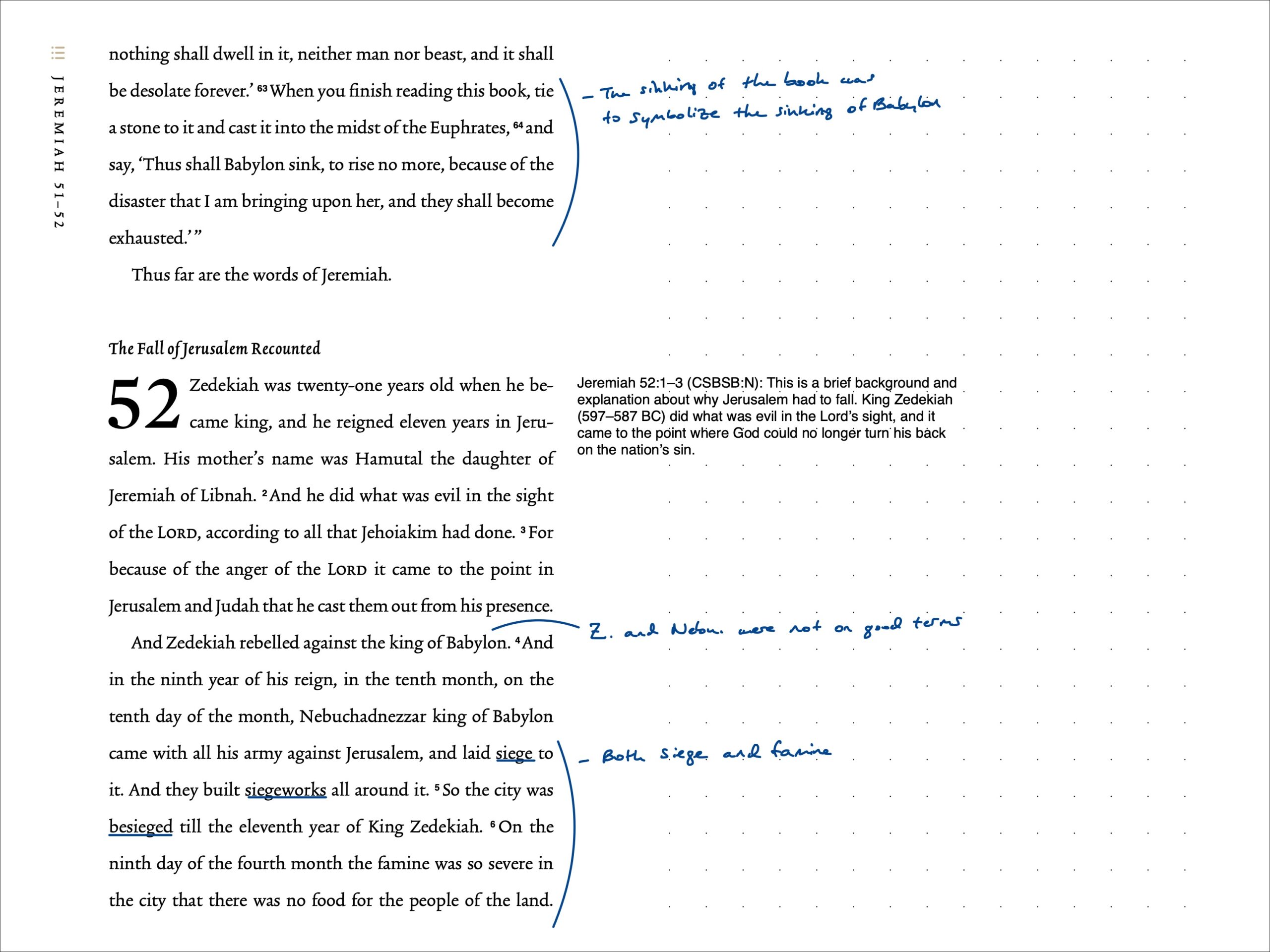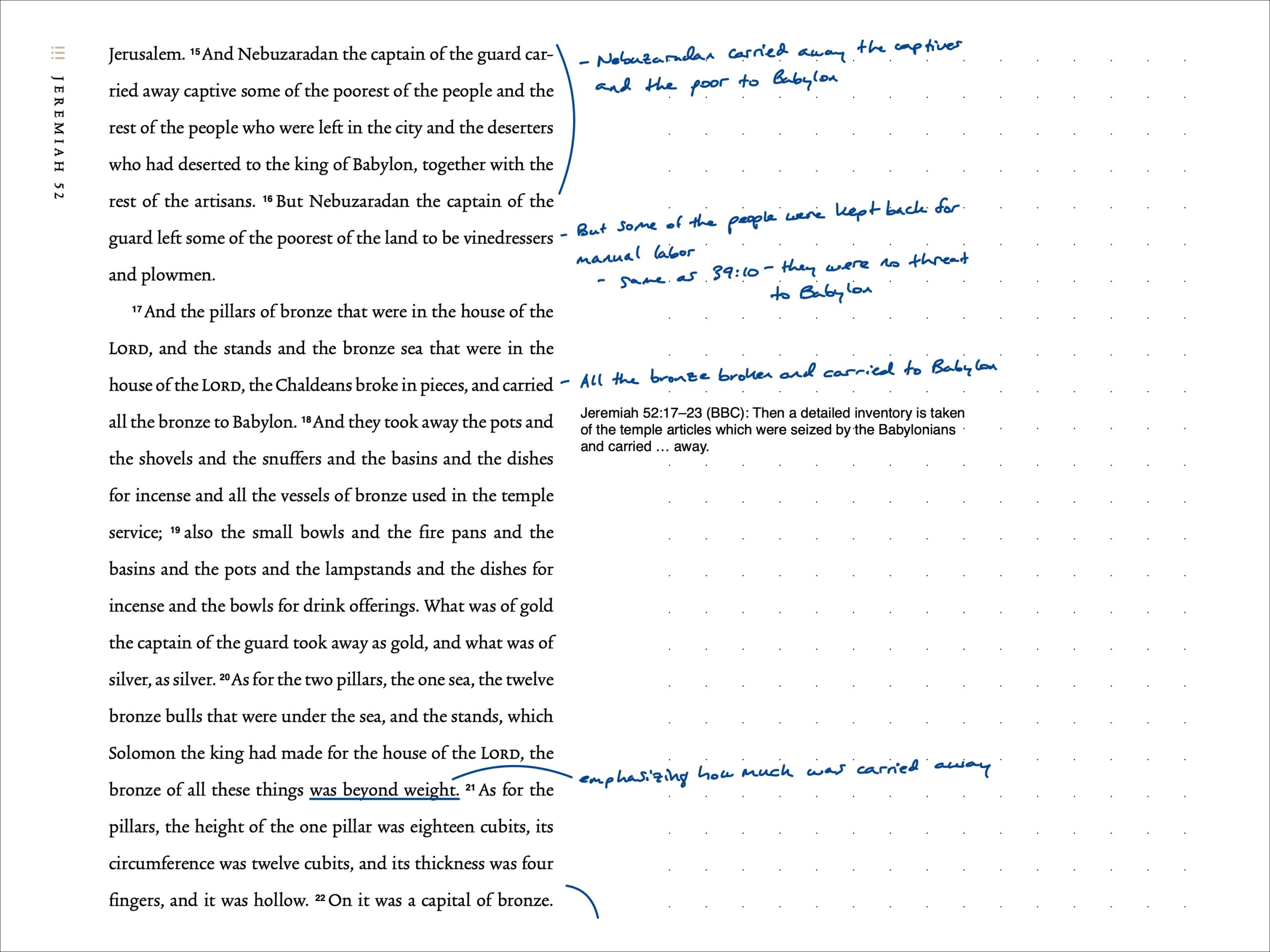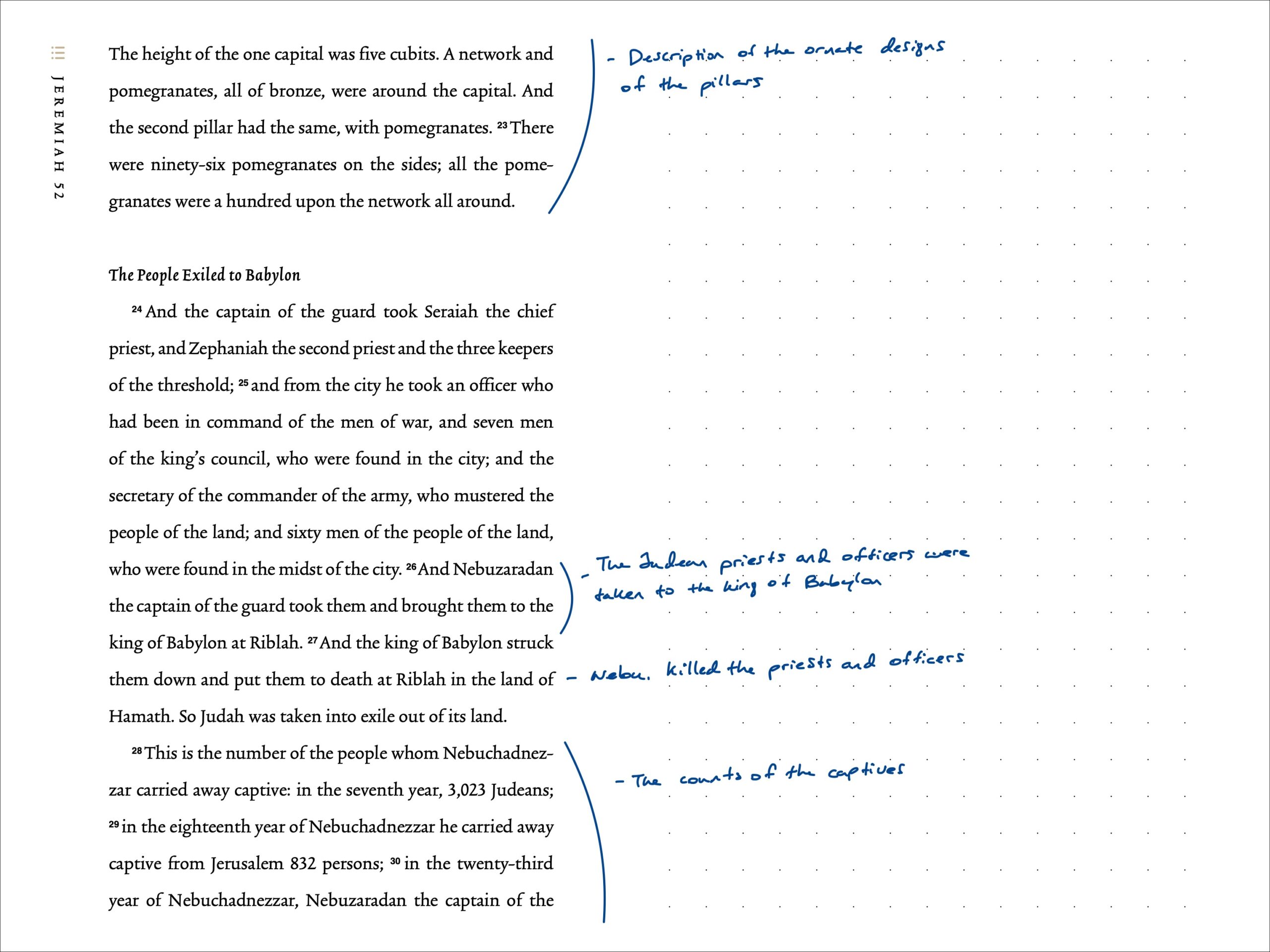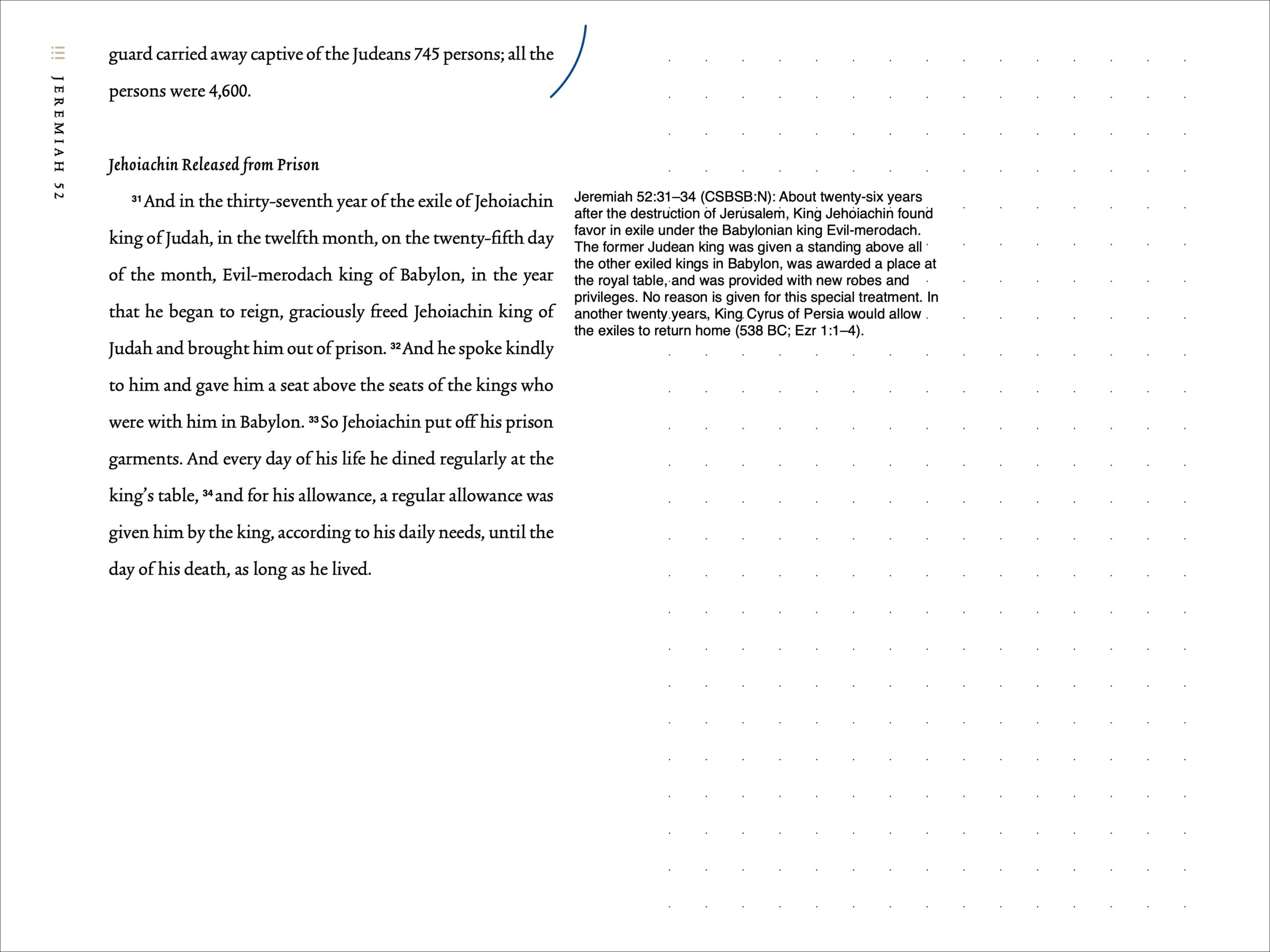| Date | Version | Reading Plan |
|---|---|---|
| @August 15, 2023 | ESV (2016) | ESV Prophets Plan 2023 |
Pericopes
- The Fall of Jerusalem Recounted
- The Temple Burned
- The People Exiled to Babylon
Notes
The final chapter of Jeremiah opens with a brief background and explanation of why Jerusalem had to fall. King Zedekiah of Judah (597-587 BC) did what was evil in the Lord’s sight and it came to a point where God could no longer turn His back on the nation’s sin.
Jer. 52:4-11 describes how Nebuchadnezzar, king of Babylon, laid siege on the land and that the suffering was compounded by famine. The male Judean warriors fled along with king Zedekiah (similarly described in Jer. 39:4; 2 Kings 25:4) but were overtaken by the Chaldean army (Jer. 52:8). The Babylonian king slaughtered the sons of Zedekiah, took out his eyes, bound him in chains and place him in prison in Babylon until he died (see Jer. 39:5-10; 2 Kings 25:7).
Jer. 52:12-16 recounts the burning of the houses: 1) the house of the LORD, 2) the king’s house and 3) the house of Jerusalem (Jer. 52:13). Every great house was burned down and Nebuzaradan, the captain of the guard, carried away “some of the poorest of the people who were left in the city and the deserters who had deserted to the king of Babylon” (Jer. 52:15). However, Nebuzaradan kept back some of the poorest for manual labor, to be “vinedressers and plowmen” (see Jer. 39:10).
Jer. 52:17-23 is a detailed inventory of what was taken from the temple during the Babylonian takeover. Much of the temple articles were seized by the Babylonians and taken away; everything of bronze, gold and silver. Great detail is provided to the bronze items king Solomon had made for the house of the LORD that were “beyond weight” (Jer. 52:20). Among the bronze items were the large and ornately designed capitals and pillars (Jer. 52:22-23).
Jer. 52:24-30 is of the exile of the people to Babylon. The Judean priests and officers were taken to the king in Babylon and subsequently put to death “at Riblah in the land of Hamath” (Jer. 52:27). Counts are given of those who were taken into exile in Jer. 52:28-30 with the total of all persons being 4,600.
The remaining verses of the chapter (Jer. 52:31-34) are of the treatment of Jehoiachin, about 26 years after the destruction of Jerusalem. He found favor in exile under the Babylonian king Evil-merodach and was given standing above all other exiled kings in Babylon. He was awarded a place at the royal table and provided new robes and privileges. No reason is given for the special treatment. In another 20 years, King Cyrus of Persia would allow the exiles to return home (538 BC; Ezra 1:1-4).
Application
Jeremiah puts a cap on his prophetic ministry in this, the last chapter of his book. The devastation is complete, houses are burned, everyone is either exiled or killed and the Jerusalem temple is ransacked. The book ends on a bit of a cliffhanger as to the next phase of the Israelite journey, but we know from living on this side of history that it will be the return of the exiles and the rebuilding of the temple.
In many ways, this is indicative of us as we navigate difficult seasons. Often, we can find ourselves in suspense, wondering what God has for us next, many times praying for reprieve from a difficult state of affairs. We can reach the end of our patience, begin to speculate on God’s motives, questioning His goodness or even His very existence. However, if God’s Word illumines anything, it is of His faithfulness to always lead His children toward a fuller understanding of and deeper communion with Himself.
This is the root of all our praise, that He would meet us in the moment and manner of our deepest need, sending His Son to be our Vicar, taking on Himself our due punishment, covering us with His righteousness and delivering us to the Father. Praise be to God for His kindness and mercy, for His steadfast love endures forever.
Scripture Journal Notes
Commentaries & Resources Used
- ESV Study Bible. (Wheaton, IL: Crossway, 2008)
- Faithlife Study Bible (Lexham Press, 2016)
- Believer’s Bible Commentary (Thomas Nelson, 2016)
- CSB Study Bible Notes (Holman Bible Publishers, 2017)
- Matthew Henry’s Commentary on the Whole Bible (Guardian Press, 1976)
- The Bible: A Reader’s Guide (Sterling Publishing, 2011)
- The Infographic Bible (Zondervan, 2018)
- ESV Digital Scripture Journal (Crossway, 2019)




